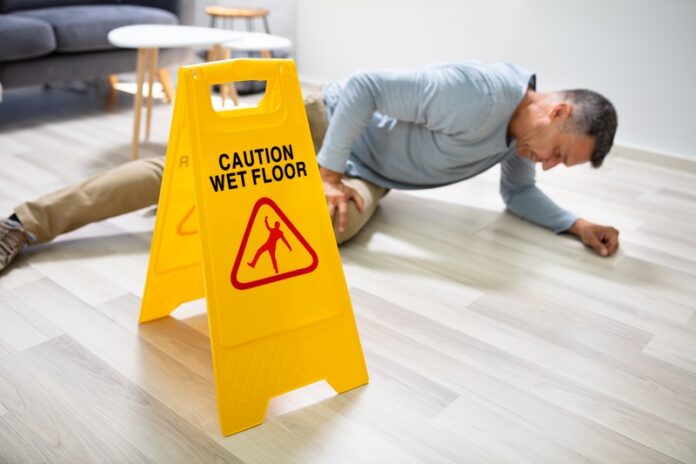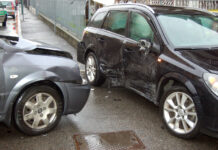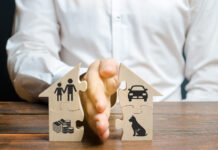
Slip and fall accidents can occur unexpectedly, anywhere, and at any time, posing a significant threat to your safety and well-being. The consequences can be severe, ranging from broken bones, head trauma, and spinal cord damage to even death. These sudden events can profoundly impact your life, inflicting physical pain, emotional distress, and financial hardship.
The impact can be overwhelming, affecting your ability to work, maintain relationships, and enjoy daily activities. If you’ve been injured in a slip-and-fall accident due to someone else’s negligence, you may be entitled to recover damages and seek justice.
Why Can You Claim Damages in a Slip and Fall Accident?
Slip and fall accidents occur when a person slips, trips, or falls due to a hazardous condition on someone else’s property. This can include slippery floors, uneven surfaces, or poor lighting. Property owners must ensure their property is safe for visitors, and failure to do so can result in liability. If the accident happened because the property owner didn’t take good care of their property, you might have a personal injury claim. Property owners have a responsibility to keep their property safe for visitors. Neglecting this duty and causing harm to visitors means the law requires them to help pay for your recovery.
If you’re unsure about what damages you can recover, Visit ConsumerShield for more details as they have resources to connect you with an experienced personal injury lawyer who can guide you through the process and help you recover the damages you deserve.
What Are the Types of Damages in a Slip and Fall Claim?
When you file a slip and fall personal injury claim, you can ask for different types of damages. These are meant to help make up for the ways the accident has affected your life. There are several types of damages you can recover in a slip and fall personal injury claim, including:
Medical Expenses
This is often the biggest part of a slip-and-fall claim. It includes:
- Hospital bills
- Doctor visits
- Physical therapy
- Medications
- Medical equipment (like crutches or a wheelchair)
You can ask for money to cover both the medical bills you’ve already paid and the ones you expect to have in the future because of your injury.
Lost Wages
If you had to miss work because of your injury, you can ask for the money you would have earned. This includes:
- Wages you’ve already lost
- Future earnings you’ll miss if you need more time to recover
- Lost benefits, like vacation days you had to use
Pain and Suffering
This is money to make up for the physical pain and emotional distress caused by your injury. It’s harder to calculate than medical bills or lost wages, but it’s an important part of many claims.
Loss of Enjoyment of Life
If your injury stops you from doing things you love, like playing sports or gardening, you might be able to get compensation for this loss.
Property Damage
If any of your personal belongings were damaged in the fall (like a watch or phone), you can ask for money to repair or replace them.
Permanent Disability
If your injury leaves you permanently disabled, you could get money for:
- Lifelong medical care
- Modifications to your home (like wheelchair ramps)
- Job retraining if you can’t return to your old job
Disfigurement
If your injury causes scarring or other visible changes to your body, you might get additional compensation.
Loss of Consortium
This is for your spouse or family members. It compensates them for the loss of your companionship and support.
How Damages Are Calculated?
Understanding the calculation of damages is a key next step in pursuing a personal injury claim, as it directly impacts the compensation you receive for your injuries. The calculation process can be complex, but it’s essential to understand how it works.
Here are the key factors to consider:
- Economic Damages
- Medical Expenses
- Lost Wages
- Non-Economic Damages
- Multiplier Method
These factors are used to determine the value of your damages. Non-economic damages, like pain and suffering, are harder to calculate. Lawyers use various methods to determine these damages, such as the multiplier method or the per diem method, to estimate the value of your non-economic damages.
What Are the Deadlines for Filing a Slip and Fall Claim?
It’s important to know that there are time limits for filing a slip and fall claim. These are called “statutes of limitations,” and they vary by state. In some places, you might have as little as one year to file a claim, while in others you might have up to four years. That’s why it’s important to talk to a lawyer as soon as possible after your accident.
Why Do You Need a Lawyer?

Dealing with a slip-and-fall claim can be complicated. A personal injury lawyer can help you:
- Understand what damages you might be able to recover
- Gather evidence to support your claim
- Negotiate with insurance companies
- File a lawsuit if necessary
Many personal injury lawyers offer free consultations, so you can get advice without any cost.
Conclusion
If you’ve been hurt in a slip-and-fall accident, you might be able to recover various types of damages. These can include money for medical bills, lost wages, pain and suffering, and more. The exact amount you can recover depends on many factors, including how badly you were hurt and how the accident has affected your life.
Remember, every slip and fall case is different. It’s important to get personalized advice about your situation. By understanding what damages you might be able to recover, you can make informed decisions about your claim and work towards getting the compensation you deserve.
Find a Home-Based Business to Start-Up >>> Hundreds of Business Listings.
















































